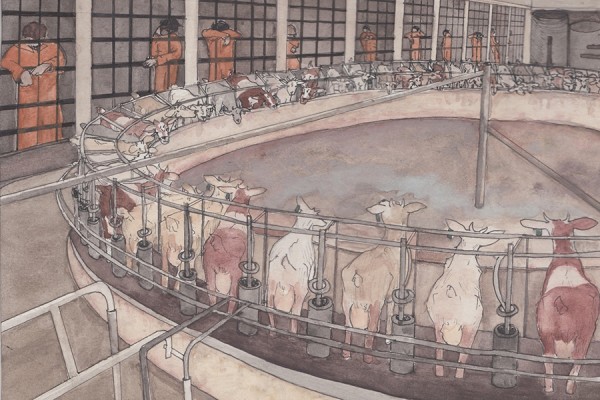 A new report pans goat dairy operations planned for eastern Ontario prisons.
A new report pans goat dairy operations planned for eastern Ontario prisons.
Despite the lack of any empirical evidence that working with livestock has any rehabilitative impact, the Correctional Service of Canada is planning to open an industrial-size goat dairy operation, staffed with federal inmates.
A report by UWindsor criminology professor Amy Fitzgerald and sociologist Amanda Wilson of Saint Paul University takes issue with the program’s stated goals of providing inmates with skills training to prepare them for successful reintegration upon their release.
The two summarize their report, entitled “Canada’s proposed prison farm program: Why it won’t work and what would work better,” in an article published Monday in the Conversation, which shares news and views from the academic and research community.
“As far as we can tell, prisoners will not receive farm specific value-added vocational training, such as certifications. Nor does the goat initiative match the needs of the labour market,” they write.
The authors add their concerns aren’t limited to the prisoners working on the farms, noting that large concentration of animals can contribute to viral spread, diminished air quality, and issues of manure disposal.
Instead, they recommend an alternative farming program focused on producing organic fruits and vegetables for prisoners and community food organizations.
“Reopening prison farms is a historic opportunity for CSC to establish itself as a leader in innovative rehabilitation and reintegration programming. The proposed goat dairy will do everything but. We urge CSC to re-evaluate their plan because the potential risks outweigh the highly speculative benefits,” conclude Drs. Fitzgerald and Wilson.
Read the entire piece, “The Correctional Service of Canada’s goat plans won’t help inmates,” in the Conversation